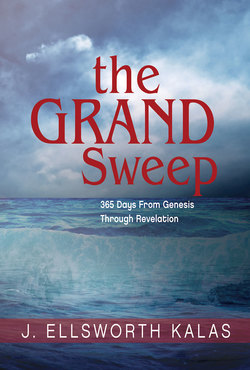Читать книгу The Grand Sweep - Large Print - J. Ellsworth Kalas - Страница 35
На сайте Литреса книга снята с продажи.
Оглавление| EXODUS 11–12; PSALM 30 | Week 4, Day 7 |
The Passover, Moses and Aaron understood, was to be “the beginning of months” (12:2). Many contemporary Jews who do not identify themselves as being religious nevertheless celebrate Passover; its roots are deep not only in their national heritage but also in the individual psyche. For the Egyptians it was a night of disaster and judgment, but for the Jews a night when they saw the power of God manifested on their behalf.
Thus it was a “day of remembrance” to be celebrated “throughout your generations” (12:14). A casual reader may find the many details tedious, but this exactness was intended to underline the gravity of this day above all days.
The Christian church, from its beginning, has found some of its roots in this same event. The first celebration of the sacrament of Communion came in the setting of the Passover meal (Luke 22:14-18). Any number of details from Exodus 12 have carried over into the hymns and liturgical language of Christians. Most important of all, Jesus Christ is identified as our Passover Lamb (1 Corinthians 5:7), the One who died that we might escape the eternal death angel.
I suspect that the Passover celebration is most poignant for those Jews who have a vivid sense of what God did for their ancestors in Egypt, just as Holy Communion means the most for those Christians who realize how profoundly they have been saved from sin. Those who know how much they have been forgiven are the most grateful for the divine gift.
PRAYER: Dear Lamb of God, may I never forget your death for me. Amen.
List the various elements and details that were to be part of the Passover celebration.
